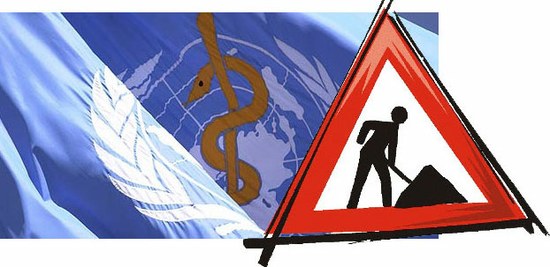 The WHO reform process that started at the WHO Executive Board meeting in January 2011 and was discussed during the 64th World Health Assembly is under way. The reform process was proposed by the Director General. It touches upon many important aspects of the organization posing a great risk to the fulfilment of its constitutional mandate.
The WHO reform process that started at the WHO Executive Board meeting in January 2011 and was discussed during the 64th World Health Assembly is under way. The reform process was proposed by the Director General. It touches upon many important aspects of the organization posing a great risk to the fulfilment of its constitutional mandate.
Since mid-August, some key documents related to the proposed WHO reform, including three concept papers on WHO governance, an independent evaluation and the proposed World Health Forum as well as a timeline for the reform process are finally available on the WHO website, with the following introduction:
“The process of reform is Member State-driven and inclusive. Online consultations and briefings with Geneva-based missions are ongoing and the reform process will also be discussed at the regional committee meetings. Consultations will continue in the months leading up to a special session of the Executive Board 1-3 November 2011.”
According to an earlier WHO communication to the Medicus Mundi International Network, contributions by civil society organizations are “highly valued and encouraged”. The indicated WHO website however does not explicitly invite interested parties to comment on the reform proposals nor even offer an entry point for eventual feedback…
Time to relaunch dialogue between WHO and civil society organizations
No problem at all with the approach of a “Member State-driven” WHO reform. But what about the “inclusiveness” of the process? For the time being, this is still an unkept promise. As my colleague Remco van de Pas points it out: “The WHO Director General mentioned that she will consult, consult, consult with all involved parties before any decision is made on the reform direction. It might be worthwhile to request for more transparency and hearing possibilities.”
Some elements of civil society frustrations with the WHO reform process and the proposed “World Health Forum” are not at all new but have been on the table already right after the start of the “WHO Civil Society Initiative” in 2001. The current debate shows that is is high time relaunch the dialogue between WHO and civil society organizations which is blocked since several years. In the last years, this relationship has even deteriorated. The way how access of civil society organizations, including NGOs in official relations with WHO, to the World Health Assembly (mainly: side events) is more and more restricted, is barely acceptable.
In 2002 to 2004 a proposed new policy for WHO relations with NGOs was extensively debated and amended at the request of WHO Member States. During debate of the latest version at the 57th World Health Assembly, May 2004, it was decided to “postpone consideration of the new policy in order to provide the Director-General time to consult all interested parties with a view to reaching consensus on the terms of the resolution to be submitted to a subsequent Health Assembly through the Executive Board.” High time to resume…
Anyhow, WHO would know it better: “Integrating civil society into its work will be vital to the Organization’s future development and bring much needed vitality and energy to meet the public health challenges of the 21st century.” (WHO/CSI/2002/DP1)
Thomas Schwarz, Executive Secretary
Medicus Mundi International Network
17 August 2011 (updated, first version published in July)
